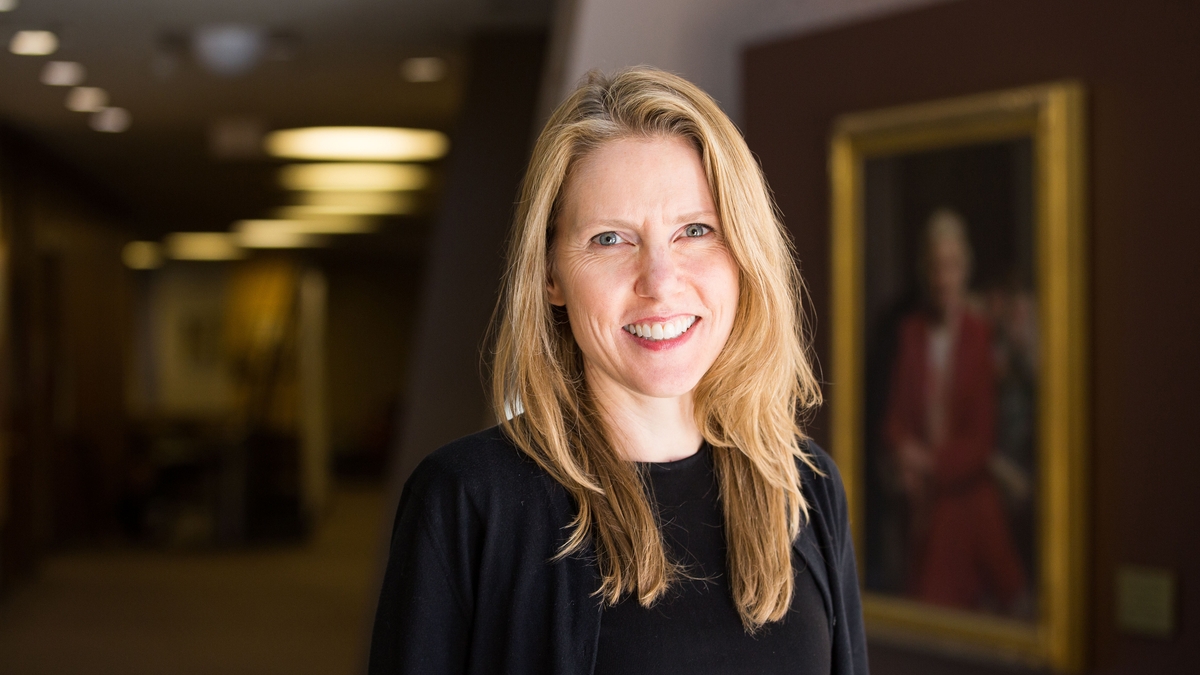ASU’s Sandra Day O’Connor College of Law has just launched the nation’s first Rule of Law and Governance program.
So, what exactly does that mean?
Think of it as a Peace Corps for lawyers — a way for attorneys to show the benefits of our legal system to others, assist countries in transition to adopt policies that will improve basic human rights and foster sustainable economic development, and getting them to establish their own rule of law.
And, rule of law?
Well, in general terms, the rule of law is the legal concept that a nation should be governed by law, rather than by the arbitrary decisions of government officials.
“By global standards, the United States has an excellent legal system,” said Julia FromholzJulia Fromholz is also a Professor of Practice in the Sandra Day O’Connor School of Law., who is the director of the program and worked most recently for two years at the U.S. Embassy in Islamabad, Pakistan, as the Senior Advisor, Rule of Law.
“That said, we all know there are flaws to our system. It’s not perfect and in some ways it’s far from perfect. However, a good legal system and rule of law cannot be complacent. Perfection will never happen because it’s a system run by human beings.”
The Rule of Law and Governance, a joint program with The McCain Institute for International Leadership, hosts classes at ASU’s Downtown Phoenix campus and its Washington D.C. location. It is led by Ambassador Clint Williamson, who has served as a state and federal prosecutor, a White House policy maker and as the U.S. Ambassador-at-Large for War Crime Issues.
“At any given time, there are thousands of lawyers working around the globe doing international development projects in the rule of law,” Williamson said. “But there has not been a comprehensive training program at any law school to teach lawyers how to do this type of work.”
The program focuses on current issues, justice and human rights, U.S. and foreign policy, criminal law and commercial law — the latter is especially important concerning countries that are developing a Rule of Law, according to Fromholz.
“There are links between security and economic development,” Fromholz said. “If a country doesn’t protect, for example contract rights, there will be very little investment there. Businesses can’t thrive under uncertainty.”
Countries also can’t thrive when basic human rights are being violated. Places like Cambodia, where someone can stay in jail as long as they’re waiting for a trial. Or where a judge is told by the government to rule a specific way or face banishment to a lower court. Or a nation where an attorney in the prosecutor’s office is subject to bribes.
“One tries to affect change from many different angles, including international treaties, working with locals who know the system, training for judges and prosecutors and even in some cases, using publicity to shine a light on a problem,” Fromholz said. “We can say, ‘We know this is a problem and we’re going to support those people who are trying to affect change.’ ”
The first cohort, composed of eight juris doctor and one Master of Law student, started taking classes this winter in Washington D.C. Williamson and Fromholz hope that number will swell to 15-20 students next semester.
Fromholz said in addition to academic studies, the goal of the program is for students to travel to other countries to help develop the rule of law in those nations and work alongside policymakers, attorneys and locals familiar with the culture, institutions and legal system — essentially creating a Peace Corp for lawyers.
“This program will help students who want to serve causes greater than themselves, which appeals to this generation,” Fromholz said. “It’s inspiring and important that this generation who are particularly interested in international law is taken by that notion.”
Top photo: Julia Fromholz, photo by Deanna Dent/ASU Now
More Law, journalism and politics
Can elections results be counted quickly yet reliably?
Election results that are released as quickly as the public demands but are reliable enough to earn wide acceptance may not always be possible.At least that's what a bipartisan panel of elections…
Spring break trip to Hawaiʻi provides insight into Indigenous law
A group of Arizona State University law students spent a week in Hawaiʻi for spring break. And while they did take in some of the sites, sounds and tastes of the tropical destination, the trip…

LA journalists and officials gather to connect and salute fire coverage
Recognition of Los Angeles-area media coverage of the region’s January wildfires was the primary message as hundreds gathered at ASU California Center Broadway for an annual convening of journalists…


